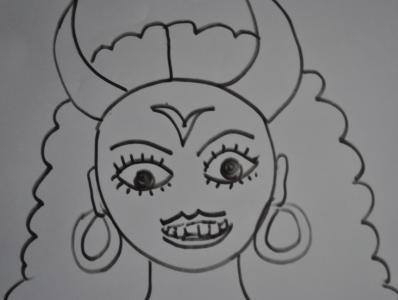
Were we able to see the real victims in the persona of the persons that came on stage, a big stage, to talk of their anguish and angus? When victims these children of the lesser god seem to us like bad characters as this is the image that we create for them. We keep away from them and talk about them in a hush manner and tone.
We don’t have to do anything with these “baddies” as that is how we talk about them in the restricted walls of our home or in restricted and close circles. But when these very persons are depicted in some famous way they suddenly become “victims” and are glorified for all that they have suffered.
It is a great irony that we don’t ever try to listen to their pain when they are in close proximity and within reach of our existence. We turn away from them and their world of pain.
Do we need Amir Khans of the world to unravel to us what is the most significant and primary language that human beings have ever used—the language of silence. I wonder how sham we have become as a people as a society where we need a platform to talk about some such basic social issues that abound around us.
The slogans we give to the society courtesy the all pervasive media has made us look at the world from the glasses of the media presentation.
I am ashamed to say that our society has become so insensitive that we need media to awaken in us some very basic and intrinsic of human values which I thought that made us human beings.
We listen to much hyped discussions on television, or if we are lucky in person and show our emotions bare and naked in public, garner a public face that makes bonds with the social beings,
Does it mean that before watching such programs we had no human face, human feelings and sensitivity that I am sure even an infant does possess!
Ask yourself a very sincere question—whether you have ever tried to read the silence of someone around you? Have you tried to read beyond what was apparent?
But why should you? We have been taught to believe that every person has a personal zone and it would be uncivilized to peep in that restricted zone. We pretend as if nothing has happened even if in our own neighborhood we have listened to shouts of a woman in her home.
We rather close the windows and behave very normally in the morning when we come across that woman whose shrieks we might have heard the previous night. We hush-hush our children if they ask us disturbing questions.
Better still we ignore if we know some untoward incident has happened in our workplace as it is the good name of the place that we work at which matters more to us rather than the anguish, pain and angst of someone at the receiving end.
Good people do not talk about these issues and keep on working as if nothing has happened.
That makes everyone happy. The workplace and the neighborhood remains the respectable place to work and live in.
Our kids learn, quite early in life, that one must close one’s eyes and ears when someone is in distress. Poking your nose in others’ affairs in uncalled for.

We make distress and anguish of a person the discussion topic of our polite talk and act as if that person, if at all that person exists, belongs to a different world, a world that we have nothing to do with.
And one fine day if some Amir Khan decides to be a spokesperson for the anguish of that distressed soul, we sit in our homes very comfortable, sipping tea or coffee after our sumptuous breakfast on a Sunday morning and watch Satyamev Jayete!
We cry openly with Amir Khan, we empathize with the victims for coming forward so boldly on screen to talk about their anguish.
We decry the “predators” and be with the “victims” and perform our moral duty by watching a program which Amir Khan presents. We do our this duty in most religious manner, No guests during this program.
And for whole of the week we discuss various aspects of the program. We criticize the parents of the “victims” for being so deaf as not to hear the voice of distress of their children!
We forget very conveniently, during these very intellectual discussions that we are still not listening to the cry for help in our own neighborhood even at that time.
But why should we listen to the cry of anguish and distress nearer home, we would rather write to Amir Khan about this victim and let him give a voice to that victim. Meanwhile we can relax in our own small world where social issues are the concerns of others.
The social problems are to be hidden under the carpet in our own home and workplace as we are decent people where such things do not take place.
We sure are queer people!
Art by Saroj Thakur
Saroj Thakur is a writer, blogger and teacher.
Born (1956) in Shimla, Saroj was previously a fellow at IIAS Shimla (2009-2010). She writes on women, gender, mythology, and language studies. She has been teaching at National Institute of Technology (N.I.T. Hamirpur) since last 26 years.
An active blogger, trekker and an RTI enthusiast Saroj Thakur presently lives in Hamirpur town of the Indian state of Himachal Pradesh.
Follow on : http://sarojthakur.wordpress.com/


